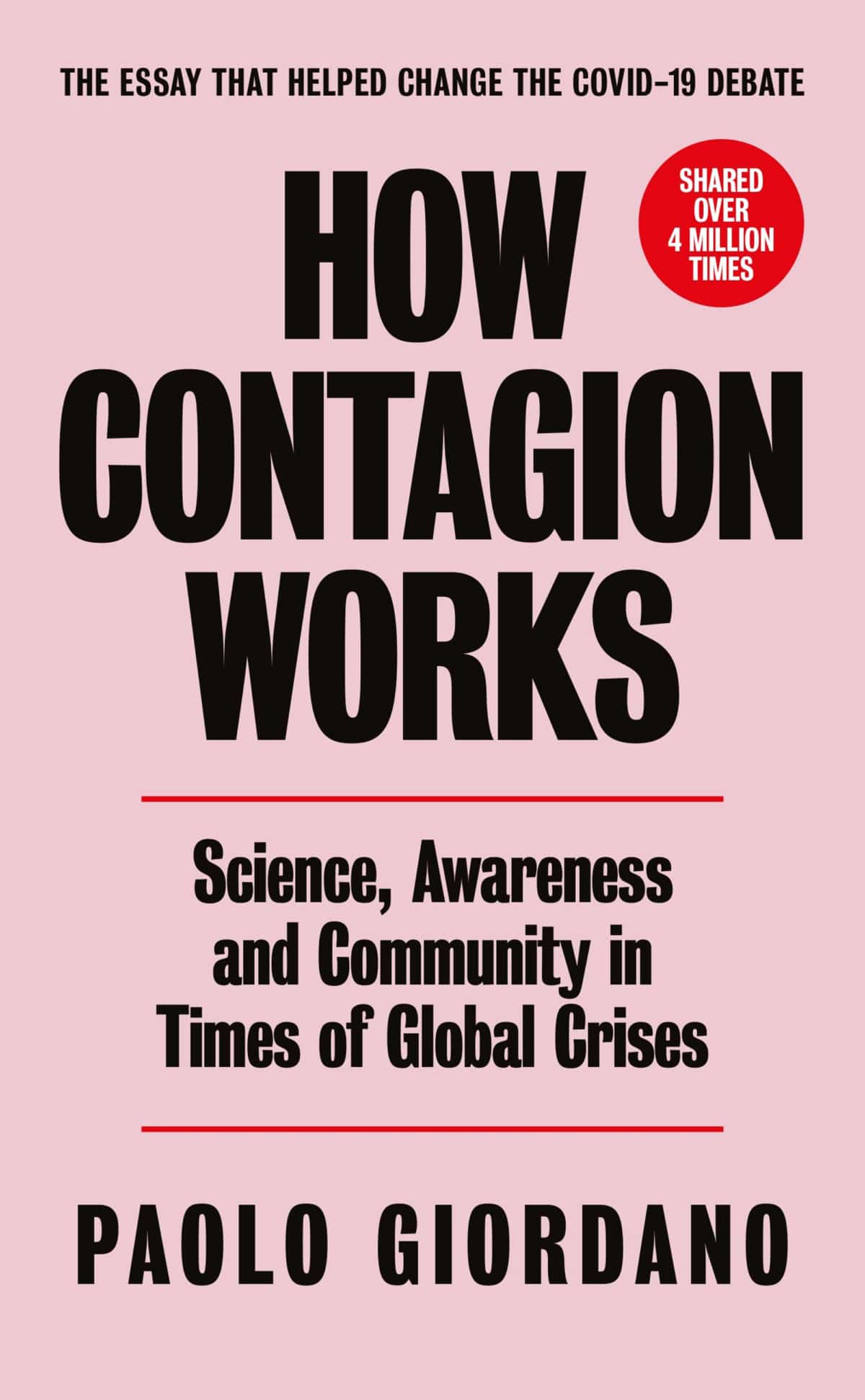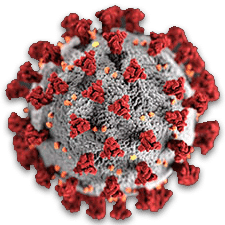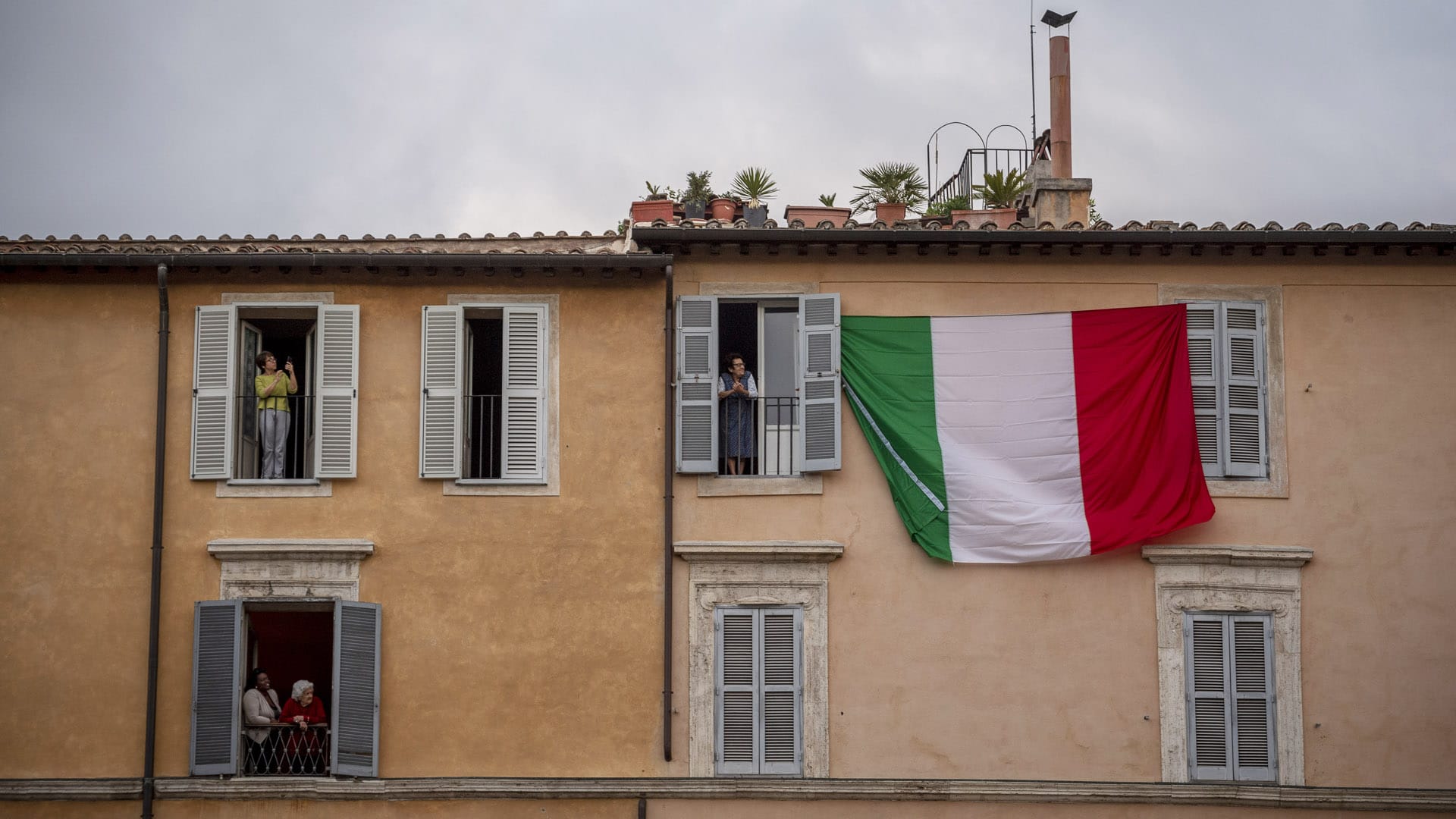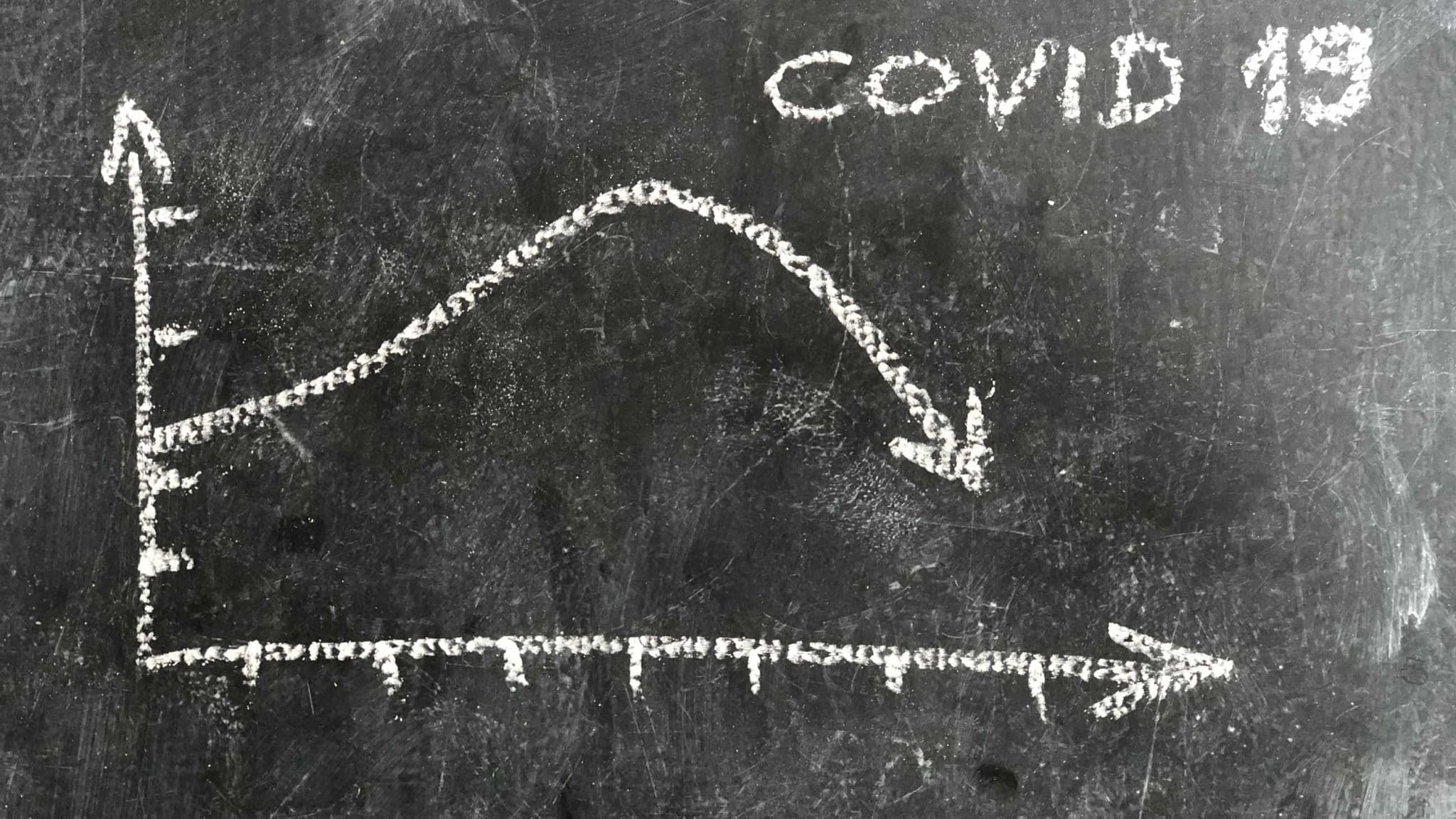The Undark Interview: A Conversation With Paolo Giordano
Aside from the U.S., few countries have been hit as hard by Covid-19 as Italy, where nearly 30,000 people have died since the first cases were reported at the end of January. As his country went into lockdown in March, Italian physicist and novelist Paolo Giordano began to think about how the pandemic was altering society. His essay, “How Contagion Works: Science, Awareness, and Community in Times of Global Crises,” composed as the pandemic unfolded day by day, has now been published as an e-book by Bloomsbury.

“How Contagion Works: Science, Awareness, and Community in Times of Global Crises,” by Paolo Giordano (Bloomsbury Publishing, 48 pages).
Giordano, 37, is the author of four novels, including the international bestseller “The Solitude of Prime Numbers,” and is the youngest novelist to win Italy’s prestigious Strega Prize for fiction (previous winners have included Primo Levi and Umberto Eco).
For this installment of the Undark Interview, I spoke with Dr. Giordano about his perspectives on the pandemic, which range from the mathematical to the personal, as we struggle to come to terms with our new reality.
Our conversation has been edited for length and clarity.
UNDARK: In your essay, you described the pandemic as a “mathematical emergency.” What did you mean by that?
Paolo Giordano: I was writing when the situation was just unfolding in Italy, there was still a lot of confusion. The numbers were increasing, but it was the beginning of the growth of the curve. It really took a leap of the imagination — it took mathematics — to see where that line was leading us, and how quickly.
The situation looked completely out of control; completely crazy and very scary.
If you understand the mathematics, it doesn’t make it less dramatic — but it makes it less scary, because you understand that is exactly the behavior that you expect from an epidemic that’s freely growing.
It’s very easy to [come up with] wrong expectations of what could happen. You might say, “We’re past the peak; in a week it will all be over, and we’ll be back out again living our lives.” But if you learned enough mathematics, you know that this can’t happen; that it will be much slower.
UD: The pandemic is keeping us apart from each other, but we need human contact. You write that it feels “as vital to us as breathing.”
PG: A couple of days ago, I was looking at the YouTube channel of the band Radiohead — they’re releasing footage of their previous concerts. I was watching one [of the videos], and then I had to stop, because I felt so bad, looking at the crowd. It’s not just that it’s impossible today; it’s impossible for the next year, at least. And that made me very sad. That part of being together is part of my culture. It’s part of the structure [of our lives] as human beings. When they say that we’ll be able to go to a restaurant at tables of up to four people, it will be better but it won’t be OK.
Honestly, I get very nervous when I hear people saying that the lockdown is a chance to rediscover — I don’t know what! I hate social distancing. The idea is to go back to that concert; to be in that crowd.
 |
Thoughts or questions on Covid-19? |
UD: And yet we can’t have crowds; we can’t even be together with our families.
PG: We’re told that to protect the people we love, the people we want to be with, we need to take a step back from them. Think of children and grandparents: We always say to the children, “You should visit grandma because it’s a nice thing to do,” and it’s a part of our values in society. And then suddenly we say, “No, you cannot visit grandma because if you visit her, you could put her in danger.” So if you love her, you must stay away from her. And that’s a paradox in our vision of the world. And the only way out of the paradox, for me, is to assume that it’s temporary.
UD: But are we really going “back to normal” when this is over?
PG: Are you asking about my wishful thinking, or about my rational thinking? Both matter, in this situation. We don’t have the data, the facts, to know when we will. I think we will, because in one way or another, we’re going through this. This is not stopping the world forever; this is not keeping us apart forever.
In a more — or less — dramatic way, we’re going back to being together. What we really don’t know is when, because it could be in six months’ time — but it probably won’t; it would take a miracle. It might be in a year’s time. Everybody says, “We will have a vaccine.” But will we? We can’t be sure. Will we reach “herd immunity” before a vaccine is released? We don’t know, because we don’t know enough about herd immunity in relation to this virus.
In Italy, we don’t even know what it will be like one month from now. We’re debating what will open, what won’t open. Before this started, I had my year planned more or less until September, very precisely — and this wiped it all out.
UD: Understandably, people are angry; we want someone to blame. In your essay, you point out the dangers of talking about where the virus “came from.” What can go wrong when we frame questions that way?
PG: Everything can go wrong! I think one of the reasons we named this disease “Covid-19” is that we don’t want to associate it too closely with a place, or with a group of people. Usually diseases have the names of their place of origin, but we now realize this is dangerous, because it led to stigmatizing a region or a whole country very easily. So wisely, we took a step back from that.
It would make it easy to have someone to blame for this — someone who’s “outside” — rather than taking responsibility for things that didn’t work, or simply not understanding things as they were happening. It’s much easier to blame someone on the other side of the world.
What worries me is not only stigmatization, but the fact that [blaming] is much simpler — it’s too simple. When we say it’s “their mistake,” it means we’re not taking this chance to understand what our shared responsibility in this is — which is related to environment, it’s related to globalization, it’s related to information. There are so many things that this pandemic is asking us to look at.
UD: Some people are calling this a “dress rehearsal” for climate change. Is that fair?
PG: That makes sense. But I’m not optimistic. Because if this is the rehearsal of how we’ll be cooperating, then it will go badly. We’re failing to cooperate on the level that’s needed. We’re seeing scientists cooperate, but we’re not really seeing countries cooperate.
I’m not seeing any serious debate about how our cooperation over health, around the world, could be reinforced. We even heard Trump threatening to cut funding for the World Health Organization, when what we need is exactly the opposite.
We need to reinforce, and give money and more power to, the organizations that can take care of health security everywhere. Because what we are realizing is that if there’s something wrong very far away — [say] in some city in China — it may concern us very deeply in two months’ time. And that’s the link that I see with climate change. In a way, climate change is a higher level of difficulty; it is more elusive than this pandemic. It’s slower, its effects are more controversial. So it is harder to take it seriously. But if we use this experience to build stronger cooperation, worldwide, then it could really be a leap forward.
UD: You describe the loss of normality — the loss of the “most sacred thing we have.” What do you mean by “sacred” in this context?
Actually, “normality” has never been that sacred for me personally; I’m always looking for ways to escape whatever feels like normality. Still, I think in this situation, normality is something very close to freedom. Freedom in the most personal sense. It’s a very weird thought, not to know whether next month I’ll be able to visit my parents in the north of Italy, or whether I won’t be able to.
The “sacred” normality is the part of normality that was so normal that we didn’t even see it. It was like air, or like breathing.











